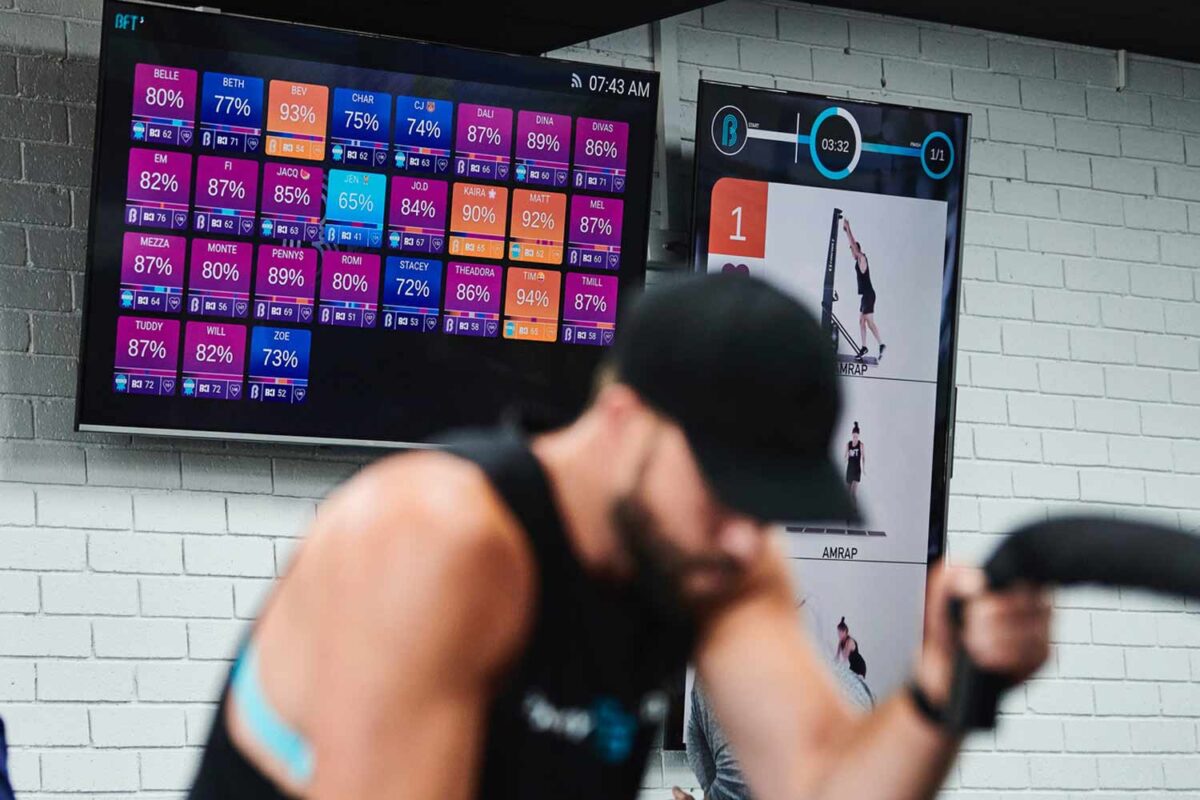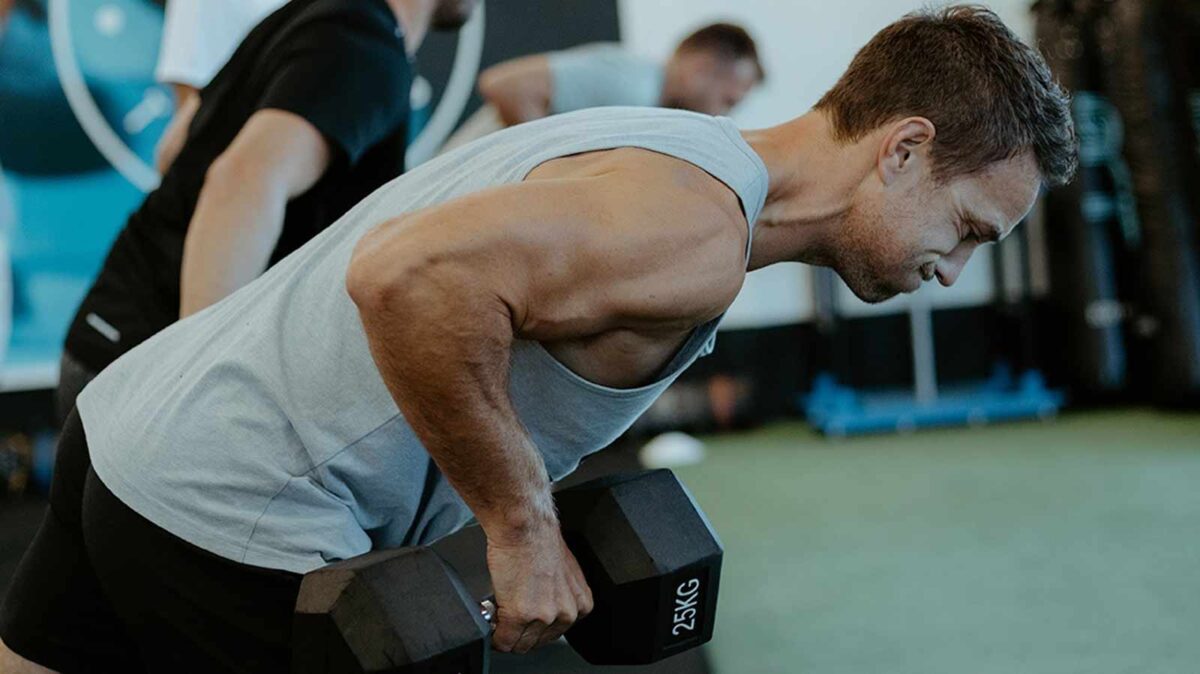I tried training with a heart rate monitor, which plastered my efforts all over a big screen at the front of a fitness class. This motivated me to work out faster and harder.
Hello: my name’s James and I’m a troglodyte. I’m sceptical about fitness technology. In my opinion, there’s no substitute for hard work, getting out into the natural world, or team sport. For this reason, I’ve always been suspicious of gadgets like Gianluca Vacchi’s death ray treadmill (as we called it at the time, anyway), self massage guns, stationary bikes with exercise apps and basically anything that could be called 2022’s equivalent of the Ab Cruncher Pro (i.e. anything that sounds like it could be spruiked on a turn of the century late-night TV infomercial).
Call me jaded, but anything more high-tech than a Youtube ‘workout motivation video’ from 2009 just doesn’t float my boat (unless you include David Goggins yelling life changing advice over Instagram). Anyway: for this reason, I have never got into tracking my heart rate while working out, wearing an Apple Watch (or Fitbit) or otherwise taking any notice of my vitals.
Until recently. A few weeks ago I had the chance to try BFT Waterloo’s heart rate specific training (and training sessions) and boy did it kick my ass. Here’s everything I learned throughout the process.

Accountability Is Awesome
Though I like to think of myself as a pretty naturally motivated person, I definitely felt the pressure to work out harder than I ever have before during a gym session or a class workout, whilst wearing BFT’s heart rate tracker. Especially having your heart rate displayed at the front of the class (alongside everyone else’s) makes it very obvious when you’re not working as hard as the rest of the class (something I’m often guilty of in the gym). Though it’s harder at the time, it’s rewarding afterwards.
Competition Is Key
Seeing what your buddy (or group) is doing, and what their heart rate is compared to yours, is a great motivator.
Some Exercises Don’t Require A High Heart Rate
The heart tracker (in collaboration with the BFT coaches’ expert advice and motivation) is an excellent tool for letting you know exactly when you should be pushing yourself harder, as well as when you ought to be taking it a bit easier.
Shame Is A Powerful Tool
Yep – when your trainer says you’re cruising, and you’re wearing a heart rate monitor, it’s hard to deny it.
I Am Fitter Than I Thought
I learnt that going to the gym isn’t the be-all and end-all for your fitness. I don’t usually go to the gym. I just surf and play soccer. This means I was much weaker than most people in the class, but apparently (judging by my persistently low heart rate), much fitter. Either that or I’m just lazy. Very lazy.
Fitness Isn’t Everything
Despite being fit, going to these classes made me realise I am sorely lacking in the ‘swole’ department. In other words: I have no muscles, and doing more than 12 burpees is beyond me. Yikes.
Tracking Yourself Can Be Brutal
If black boxes are what help aviation investigators figure out what went wrong after a plane crash, BFT’s little black box is what helps me understand why I am a shaking wreck after a workout. Props.
Overall, I’m now marginally fitter. But I need to keep training for longer to really suss out how heart rate tracking will affect my cardio and my gains. Stay tuned.
Read Next
